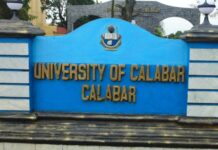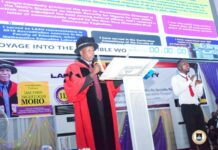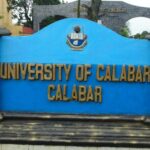Stronger quality assurance systems and more effective cooperation on recognition conventions are needed to cope with the fast-changing flows of international students worldwide, according to Stig Arne Skjerven, the re-elected chair of UNESCO’s Global Convention on the Recognition of Qualifications concerning Higher Education.
Delegates to the convention had a busy agenda when they met in Paris from 24 to 25 June to adopt an ambitious work plan to develop tools over the next two years in the form of globally negotiated and agreed guidelines to support:
- Quality assurance in higher education, including transnational education.
- Recognition of refugees’ qualifications and associated pathways; and
- Interplay between regional and global recognition conventions.
The gathering was the second ordinary session of the Intergovernmental Conference of State Parties and heard that UNESCO’s Global Convention has now been ratified by 38 member states. That’s up from 28 when delegates last met on 7 March 2024 for an extraordinary session to agree on an interim work programme, as University World News reported.
The global convention was first adopted at a UNESCO general conference back in 2019, but it needed to be ratified by at least 20 countries – a number only reached in December 2022 – before coming into force, which it did on 5 March 2023.
Skjerven, a Norwegian award-winning higher education professional and former diplomat to UNESCO, told University World News that the aim of the work plan is to support the evolving global higher education ecosystem at a time of significant transformation of global higher education.
He said that shifting international student flows are seeing declining international student numbers in the US, UK, Canada, and Australia, as demand shifts towards Asia; there has been a rise in online & hybrid learning and micro-credentials; and there has been a surge in the growth of transnational education (TNE).
“To address these changes and safeguard academic integrity, we need stronger quality assurance systems and enhanced international co-operation around the recognition conventions,” he noted.
TNE quality assurance
Among the key issues to be tackled over the next two years is the global problem of fraudulent qualifications, including diploma mills, and the need to ensure that the rapid rise in transnational education and overseas campuses doesn’t lead to declining quality standards or less recognition of global higher education qualifications.
Skjerven said: “We need to make sure there is a legislative framework in place so that students can be assured that their TNE degrees are recognised when moving to another country or region.”
To this end, the conference gave the green light to developing guidelines, or what it calls a subsidiary text, to assist universities and authorities in their work around quality assurance for TNE.”
Skjerven said the operational guidelines will provide clear guidance to help universities, recognition authorities, ministries and others to implement the convention, including setting up transparent, fair and non-discriminatory recognition of qualifications to support the mobility of students.
Recognising refugees’ qualifications
This could also help to overcome the growing crisis facing refugees and other displaced persons seeking recognition for their prior learning when they lack paper or digital access to their previous qualifications.
The Paris UNESCO conference agreed that tackling this should be a priority for the next two years, with the latest research from the United Nations High Commissioner for Refugees (UNHCR) showing that only 7% of refugee youth globally are enrolled in higher education.
Skjerven said doubling that figure is “a vital step towards equity in higher education,” adding: “We’re going to need stronger global co-operation on recognition to reach the UNHCR target of raising that to 15 per cent by 2030”.
To encourage greater cooperation, the Paris conference agreed on a practical guideline on how to operationalise Article VII of the Global Convention, which commits state parties to “develop reasonable, fair and efficient procedures for assessing the qualifications of refugees and displaced persons – even in the absence of full-documentary evidence”.
The States Parties agreed to work on guidelines for refugee qualifications’ recognition and developing complementary pathways, with more detailed research papers to be prepared for the next biannual conference in 2027.
Dr Vangelis Tsiligkiris, a professor of international education at Nottingham Trent University in the United Kingdom and a global expert on TNE, told University World News: “Expanding innovative and inclusive transnational education (TNE) models to support disadvantaged students, especially refugees and displaced individuals, is a critical step forward for global higher education.”
He suggested that blockchain technology could be used for validation and recognition of prior qualifications, saying it could provide “a decentralised and immutable ledger” to securely host academic credentials for those fleeing war zones or unable to get hold of their prior academic qualifications.
However, he admitted that global acceptance and recognition of such blockchain-verified qualifications would be a challenge.
“The development of robust international agreements and collaborative frameworks is therefore central to ensure that technological advancements translate into tangible opportunities for those who need them most,” he said.
Links between global and regional conventions
In addition to encouraging more countries to ratify the Global Convention on Higher Education Recognition, the Paris Conference agreed to renew efforts to get more countries to join the regional conventions over the next two years. Skjerven said it was important to ensure that everyone was pulling in the same direction.
Skjerven insisted they were making steady progress but added: “It is important we continue the inclusive and consultative approach to achieving global consensus among diverse state parties through multiple rounds of dialogue, which is essential for legitimacy and effective implementation.”
One development that is being closely watched is the European Degree and the creation of European University Alliances supported by the European Commission.
Skjerven told University World News the European Degree initiative was “a promising model of TNE, with the potential to inspire similar frameworks in other regions”.
However, he said such initiatives must be grounded in solid QA systems and clear recognition pathways.
Among those helping to secure mutually beneficial relations between the European regional convention, known as the Lisbon Convention, and the Global Convention chaired by Skjerven, is Catherine Dolgova-Dreyer, the head of the Higher and Further Education Unit at the Council of Europe.
She attended the Paris conference and told University World News: “The Lisbon Recognition Convention, which already has 57 contracting parties in Europe and beyond, brings decades of expertise in fostering transparency, quality, and fair recognition.
“The Lisbon Convention’s practical tools, such as the Code of Good Practice on Transnational Education and the European Qualifications Passport for Refugees, as well as subsidiary texts on refugees’ qualifications, offer tested solutions that the Global Convention can build upon.”
Slower Progress In Africa And Arab World
In contrast, slower progress on capacity building was reported with regards to the Arab Recognition Convention, which has only been ratified by only three States Parties (Palestine, Yemen, and Qatar), and the Addis Convention for Africa – where momentum has stalled.
However, on a positive note, “a number of states took the floor during the Paris conference to say that they are in the final stages of ratification of regional and-or global conventions”, said Skjerven.
Among those pushing for more participation is Samir Beecha, General Director of Higher Education at the Tunisian Ministry of Higher Education and Scientific Research.
He told University World News it was important to align global and regional recognition frameworks and called on Arab States to stay engaged.
Tunisia was re-elected as a permanent member of the UNESCO Global Convention on Higher Education Recognition Bureau, and its delegation pushed for full implementation of the convention in Palestine and unhindered access to higher education for Palestinian students and academics.
During the Paris event, African member states held an informal session at which a number expressed their willingness to contribute to regional cooperation in higher education, said Beecha, with Tunisia offering to play a key role in advancing African and Mediterranean higher education cooperation.
South Africa Among Latest Signing-up
Among the latest to ratify the Global Convention this year is South Africa, a member of the Addis Convention since 2019.
Nadia Starr, Chief Executive Officer of the South African Qualifications Authority (SAQA), told University World News: “These progressive ratifications signal our deep commitment to mutual recognition and fair and equitable skills mobility and is also reflected in terms of the priorities of our G20 Chairmanship.
“The ratification of the conventions allows for an enabling environment in which our South African Qualifications Authority (SAQA) is able to process and evaluate the recognition of foreign qualifications to support the mobility of skills.
“In Africa, this is all the more necessary, as we have mass displacement and significant regional mobility, with South Africa hosting approximately 250 000 refugee and asylum seekers.
“We believe the potential for economic and social contribution from this displaced population is significant and should be supported, and therefore we base our work with this displaced community on the principles and obligations of the conventions.”
Quality Assurance
Fabrice Hénard, Chief Executive Officer of the International Network for Quality Assurance Agencies in Higher Education (INQAAHE), also attended the Paris UNESCO event.
Hénard told University World News: “As the global network of quality assurance agencies, with a diverse membership of over 300 members across all continents, INQAAHE has a key role to play in supporting the implementation of the Global Convention on the Recognition of Qualifications, as well as the various regional conventions.
“Quality assurance can serve as a powerful lever to facilitate and secure the recognition of qualifications — particularly at a time when students, whether young or mature, returning to study or seeking to have their prior experience recognised, are increasingly mobile, either by choice or due to circumstance.”
He added: “However, the recognition of qualifications can only function within a framework of mutual trust — one that relies on the integrity and effectiveness of higher education systems.
“Our active participation in the intergovernmental conference reflects a commitment to fostering essential dialogue among the many stakeholders in higher education – both at global and regional levels – thanks to enhanced cooperation between INQAAHE and regional networks of quality assurance (QA) and other key stakeholders in higher education.”
Nic Mitchell is a UK-based freelance journalist and PR consultant specialising in European and international higher education. He blogs at www.delacourcommunications.com.
2025 University World News














